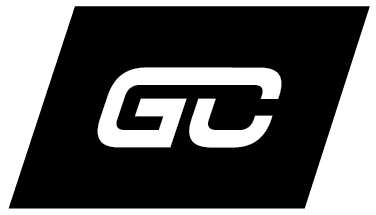Athlete Approaches to Athlete Development
Working regularly with professional athletes, I am constantly amazed at the diversity of interests, skills, and ambitions these athletes have outside of their sport. For me, these experiences put the proverbial nail in the coffin of the old stigma that athletes are dumb, uneducated, and one-dimensional.
More than ever athletes are diversifying both their personal and professional interests. That approach pays huge dividends to both their current careers and life beyond the game, which is a great thing.
In my work, however, I still come up against the self-limiting belief that “I can only focus on one thing at a time,” or “if I shift my focus slightly, I will lose focus completely.”
It never ceases to amaze me that the human brain can think 50 thoughts a minute, 70,000 thoughts per day, and still convince itself that it can only handle one thing at a time; irony worthy of Shakespeare. Nevertheless, confronting these firmly held beliefs is often the most significant challenge for athletes in engaging developmental activities outside their sport. To overcome stigmas, the process of actually putting oneself to action becomes the easy part since most athletes naturally encompass the necessary behavioral competencies and mindset to complete anything they start.
For those athletes who have accepted that they would like to expand their personal and professional development while still active as athletes, here are a few things to consider in getting the ball rolling:
“What’s the why?” is perhaps the most important question any individual can ask before taking on a new task, path, or career endeavor. The answer to this question, while potentially elusive, is the first step in developing a long-term strategic vision. Whatever the direction the athlete wishes to take, be it education, business development, or philanthropy, answering questions around why this is important will provide motivational fuel and consistency to the process and ensure that the investment of time, energy, and resources are valued and considered worthwhile.
Inherently tied to asking the above question is goal-setting. In my experience, this is the most prominent blind spot for athletes. Many of us, as products of our sport-culture environment, tend to place more emphasis on the moment and short-term wins over long-term accomplishments. Although incredibly valuable to the sporting world, career success outside sport requires an increased focus on a ”step-by-step” plan to achieve the long-term strategic vision. Without having meaningful “stepping stones” as markers of being on the right path, one’s effort may end up unfocused or misguided, which can impact the overall motivation and consistent energy needed to reach those goals. Using measurable outcomes is essential to effective goal-setting behaviors, and will ensure that one stays focused on not only the result, but the process to get there.
Time management is essential to achieve balance in sport and life. For those athletes who have accepted that they can do more with their time, effectively planning, structuring, and prioritizing time for one’s activities is essential. I often hear from athletes that they will tackle their personal development projects in the “off-season”. In my experience, this plan, while noble, does not truly consider the realities of athlete life. The off-season, as any athlete can attest to, is short and filled with numerous activities essential to long-term health and wellness of athletes. Decompressing, training, and spending time with family and friends are essential activities for athletes to “get back to neutral” and prepare for the grind of another season. Oppositely, the season itself provides the athlete with a built-in template for time management that one can schedule their outside sport developmental activities effectively. Travel days are prime for educational pursuits, practice days can accommodate networking and business development meetings. And all of this can be done without subtracting one minute of your preparation to be the best athlete you can be.
Whether it’s someone inside the sporting world or someone else that you admire or highly respect, finding an individual that you can share your goals with, consult for guidance, and receive support from is essential. As athletes, we surround ourselves with good people including trainers, agents, and coaches, and it is only natural to do so in other areas of our lives as well. Having a strong support individual or group of individuals that understand and support one’s goals can provide effective meaningful perspective in refining and adhere to the long-term strategic vision one has developed.
I have said this in the past, and continue to stress its importance and value in acclimating one’s true potential. Taking time to develop and acquire self-insight and understanding can serve as the impetus to getting the ball rolling and finding answers to the “why?” questions we must all ask ourselves. Interpreting the above heading more practically, it is essential to make a plan and set goals that work for you, are aligned with your capabilities and are consistent with your willingness to commit. A realistic approach that ensures one’s ambitions, commitments, and offerings are congruent will protect one from overextending themselves and potentially negatively impacting performance.
Game Change was founded in 2011 to serve and enhance the athlete development needs of major professional and elite sport organizations and athletes. Game Change specializes in customized research and assessment services, the development of applied interventions and resources designed to provide long-term positive outcomes for organizations and individual athletes. Game Change believes strongly in sport as a catalyst for societal change and adheres to the philosophy of ‘changing the world one athlete at a time’.







